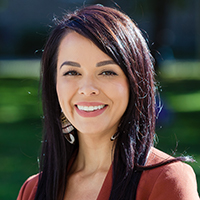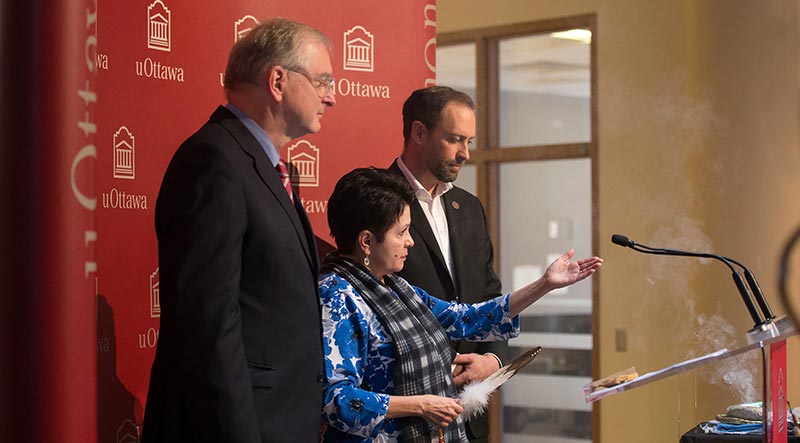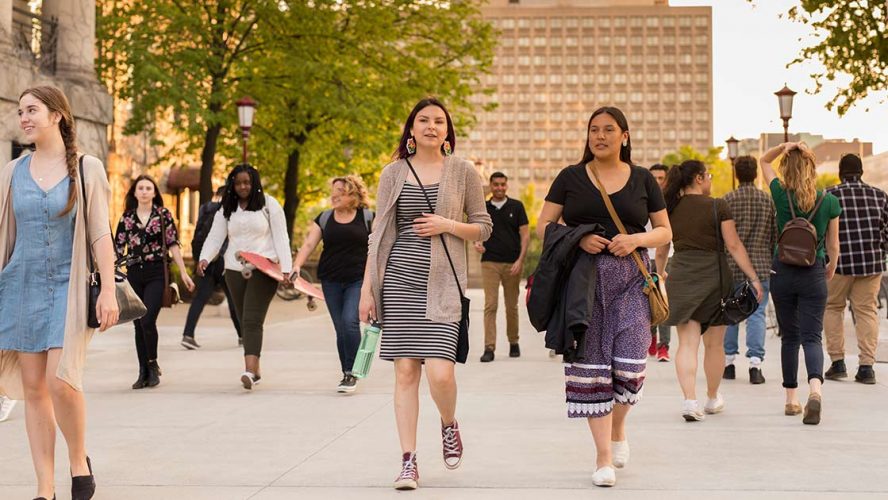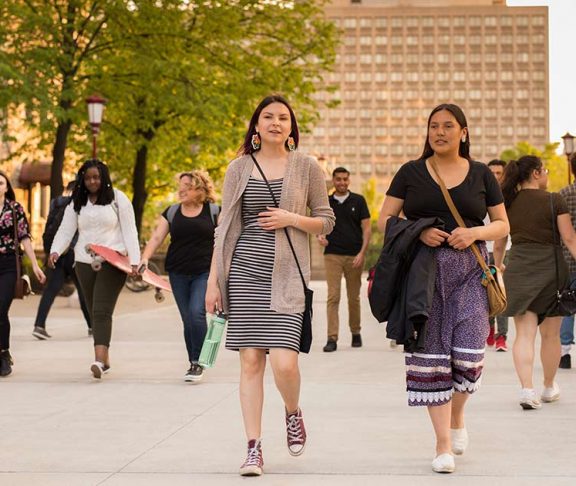
Tareyn Johnson
Director of Indigenous Affairs, University of Ottawa
Advancing reconciliation with Indigenous peoples isn’t only the responsibility of Canada’s governments. Individuals and organizations who want to learn more about Indigenous peoples should seek out Indigenous voices and listen to their stories and experiences. Only then can we establish a strong enough base to help build healthy and lasting relationships.
The University of Ottawa (uOttawa) has been striving to improve its relationship with Indigenous communities and in particular with the Algonquin nation, upon whose ancestral lands the main campus is located. Its latest resource, “Elders and Traditional Knowledge Keepers: uOttawa Guide to Indigenous Protocols,” encourages others to connect with Indigenous communities more respectfully and confidently. Readers can learn about some of the most populous local First Nations, Métis, and Inuit communities within the National Capital Region, and about topics such as the protocols that are expected when contacting, meeting, and engaging with Traditional Knowledge Keepers.
This guidebook is entirely the intellectual property of the diverse Indigenous community.
Tareyn Johnson, uOttawa’s Director of Indigenous Affairs
Bridging communities through collaboration
With continuous support from uOttawa’s Indigenous Education Council, the project was completed in collaboration with many representatives of local Ottawa-area Indigenous communities. “Our work is to ensure that we build and maintain strong relationships with them,” says Tareyn Johnson, uOttawa’s Director of Indigenous Affairs. “This guidebook is entirely the intellectual property of the diverse Indigenous community, who were gracious and generous enough to allow our team to compile their knowledge into a resource that will assist the university in building respectful and informed relationships with Indigenous communities.”
This indispensable guide is not only for the university’s faculty, staff, and students, but for other organizations that want to actively engage with Indigenous peoples. In fact, the City of Ottawa is making the resource available to its staff. And while the focus of the document is on Indigenous communities in the Ottawa area, Canadians elsewhere are encouraged to learn about the Nations and protocols unique to their own regions.

Take time and communicate before you begin
Johnson encourages businesses and organizations to first build a relationship with Indigenous communities and organizations before attempting to develop projects. The foundation needs to be built on mutual respect and consultation because communities and institutions tend to operate differently, which should be understood and respected. The “Elders and Traditional Knowledge Keepers” document took a lot of time, effort, and communication to complete. Institutions hoping to create something similar should be considerate and communicative in their plans and should keep in mind that such a guide is only the first step to a lasting relationship with Traditional Knowledge Keepers.
“We encourage people to be in constant pursuit of knowledge, as change requires action,” says Johnson. “But the most important thing for Indigenous communities is to have someone show genuine interest in their well-being and take the time to develop a relationship of mutual trust and respect before making any requests of them.”



